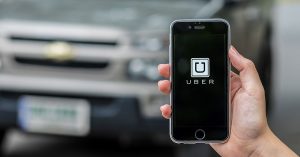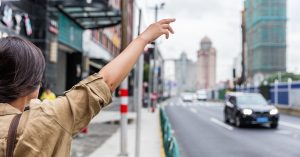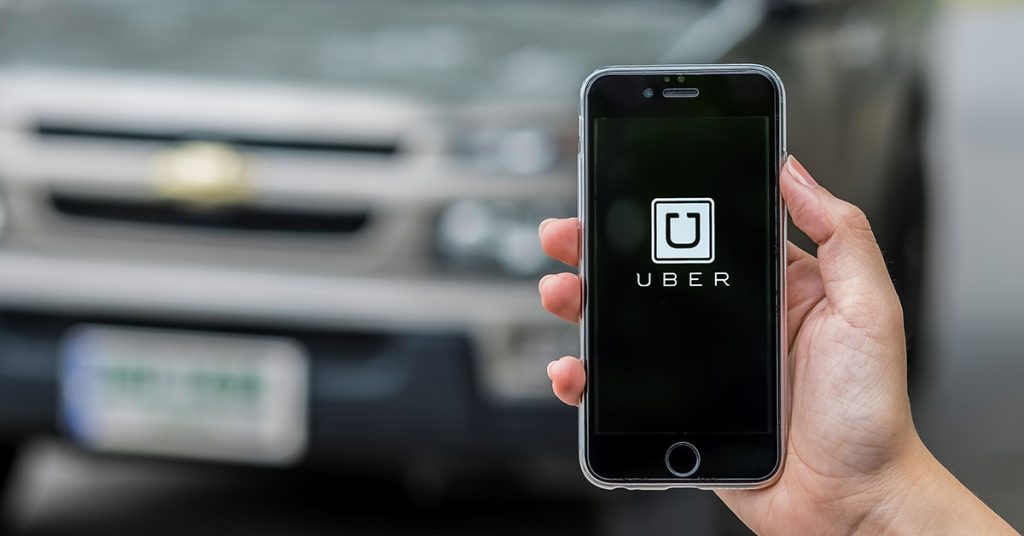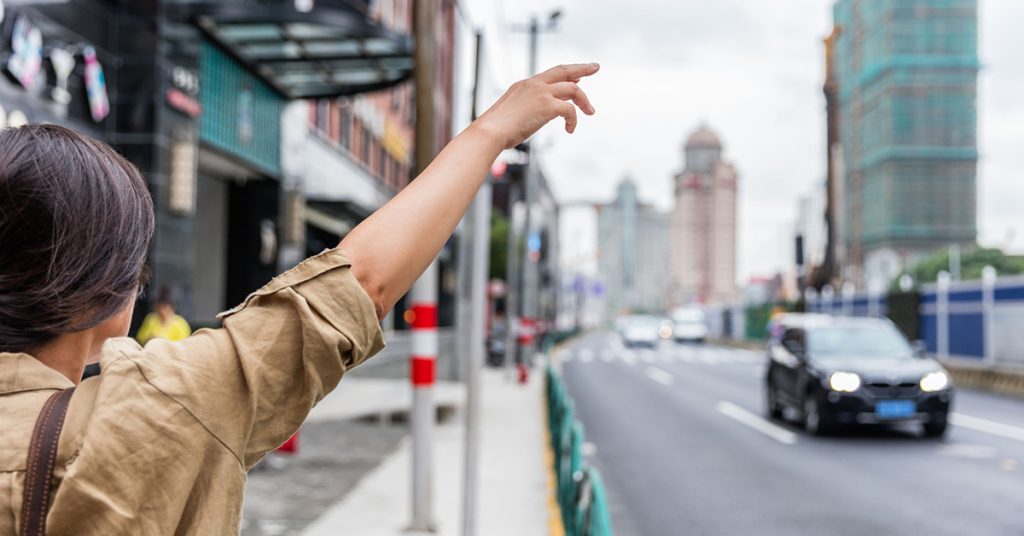Posts Tagged ‘uber accidents’
Massachusetts Supreme Judicial Court Rules Uber’s App Failed to Provide Consumers Reasonable Notice of Terms and Conditions

The Massachusetts Supreme Judicial Court has ruled Uber did not provide users with reasonable notice of its terms and conditions.
Have you ever signed up for a rideshare app and been frustrated to see the extensive terms and conditions – all on your small cell phone screen? Just what are you agreeing to?
You are not alone. Now, the Supreme Judicial Court of Massachusetts has found Uber failed to provide reasonable notice of its terms and conditions to users. A Massachusetts man and a family member filed a discrimination lawsuit against Uber in 2016, then were compelled into arbitration with the rideshare company based on the app’s terms and conditions.
But on Monday, the Supreme Judicial Court ruled there was no enforceable arbitration agreement between Uber and the plaintiffs in Christopher P. Kauders & another vs. Uber Technologies, Inc. The Supreme Judicial Court remanded the case back to Superior Court.
The Court reviewed Uber’s complicated registration process, noting app users could easily bypass the initial screens, but the process grew much more cumbersome as the consumer approached the terms and conditions and privacy policy.
The Court wrote certain terms and conditions were extensive and far reaching and, “may literally require an individual user to sign his or her life away, as Uber may not be liable if something happened to the user during one of the rides.”
The Facts
In 2016, the plaintiffs filed a civil lawsuit against Uber in Suffolk Superior Court, claiming that Uber had discriminated against them in violation of M.G. L. c. 272, § 98A. This statute prohibits discrimination against anyone who is blind, deaf or has another physical handicap and is accompanied by a guide dog in Massachusetts. One of the plaintiffs was blind and claimed three Uber drivers had refused him service in 2015 and 2016.
Citing a provision in its terms and conditions, Uber moved for arbitration against the plaintiffs’ opposition. On June 4, 2018, the arbitrator issued a ruling finding that Uber was not liable for the discriminatory acts of the drivers, who are independent contractors.
Then, on June 25, 2018, a decision came in the case of Cullinane vs. Uber Techs, Inc. The United States Court of Appeals for the First Circuit ruled that Uber’s registration process did not create a contract because app users did not have reasonable notice of the terms and conditions.
Users Not Given Reasonable Notice of Terms and Conditions
In Kauders, the Massachusetts Supreme Judicial Court wrote that Uber writes terms which are extremely favorable to the company and does not give users “reasonable notice” of the terms and conditions.
The Court concluded, “Uber’s terms and conditions did not constitute a contract with the plaintiffs. The app’s registration process did not provide users with reasonable notice of the terms and conditions and did not obtain a clear manifestation of assent to the terms, both of which could have been easily achieved.”
Another problem, the Court wrote, is Uber can amend the terms and conditions whenever it wants without consent from users. The burden is on the consumer to keep checking and there is no way for the consumer to object.
In response to the decision, an Uber spokeswoman told The Boston Globe the company had already modified its application forms in a way that should comply with the Court’s reasoning.
What if You Are Injured in a Rideshare Accident?
Rideshare companies have worked to limit their liability in many areas. However, those injured in rideshare car accidents in Massachusetts still have the right to pursue financial compensation for their injuries. In 2016, Massachusetts passed legislation to regulate Uber, Lyft, and other transportation network companies. Under the legislation, drivers must carry an adequate level of auto insurance while working for a rideshare company.
Rideshare accidents can happen and injure passengers, but also drivers of other vehicles and their passengers, as well as pedestrians and cyclists. If you have been injured, it is important to document whether a driver was operating a rideshare vehicle for work or personal use at the time of the crash.
This may be important because rideshare drivers are required to have additional coverage when logged onto the transportation company’s digital network or while the driver is engaged in a pre-arranged ride in Massachusetts.
In the News
Watch Attorney David W. White speak to NBC Boston about complicated rideshare app agreements in 2019:
Boston Car Accident Lawyers – Breakstone, White & Gluck
Breakstone, White & Gluck specializes in the handling of personal injury cases in Massachusetts and has been consistently recognized for our results, including as Top 100 New England Super Lawyers and Top 100 Massachusetts Super Lawyers.
If you have been injured in a car accident or a rideshare accident, learn your legal rights. It is in your best interest to consult a Boston car accident attorney before signing any documentation or speaking to the driver’s insurance company.
For a free legal consultation, contact Breakstone, White & Gluck at 800-379-1244 or 617-723-7676 or use our contact form.
Are You Riding in a Recalled Uber or Lyft Vehicle?
 A new report says Uber, Lyft and their drivers should move to fix auto recalls quickly. What actually happens is far different in many cases.
A new report says Uber, Lyft and their drivers should move to fix auto recalls quickly. What actually happens is far different in many cases.
In New York and Seattle, one in every 6 rideshare vehicles registered for Uber and Lyft has an open safety recall on it, according to Consumer Reports. This means while a vehicle has been recalled, the driver continues to operate it and carry passengers without addressing the broken parts. Some of the recalls, such as those involving Takata airbags, have been associated with serious car accidents and injuries. Others involve defective seat belts or the potential for car fires or engine failure.
Consumer Reports reviewed safety records for 94,000 rideshare vehicles registered to Uber and Lyft in New York City and King County, Washington, where Seattle is located. Some drivers work for more than one company, so the consumer website grouped them together and also included some data for smaller competitors.
Consumer Reports called for stronger safety recall laws and says rideshare vehicle defects should be repaired promptly to protect the public from car accidents and injuries.
When shown the data, Uber’s response was that it “encourages and reminds” drivers to have recalls fixed. The company said it blocks certain vehicles from using its platform if there is a “DO NOT DRIVE” warning from the manufacturer or the National Highway Traffic Safety Administration (NHTSA). Uber also participates in the NHTSA’s twice-a-year campaign to raise awareness about addressing auto recalls.
Lyft’s response was rideshare drivers, by using their personal vehicles, are representing that their cars meet safety standards. It went on to say drivers have a “strong personal incentive” to repair their vehicles since they are used for work and in their personal lives, “driving their kids to school or friends around town.” The company said it works with lawmakers, regulators and local officials to develop safety regulations.
Safety Tips for Rideshare Passengers
Use an App to Check For Recalls
Consumer Reports suggests consumers check for auto recalls using the myCarfax app. Once you book your Uber or Lyft, you will receive the vehicle’s license plate. Type that number into myCarfax to check if the car has a safety recall.
Avoid the Front Seat
You can also avoid the front passenger seat. Rideshare drivers may still be operating with defective Takata airbags. Takata and auto manufacturers have spent years recalling millions of airbags because they have the potential to explode and cause traumatic and deadly injuries. Around the world, 24 people have been killed and hundreds of people have suffered injuries.
The Takata recall repairs have been slow at times. The NHTSA has announced the recalls in increments and there have been delays in delivering new airbags to local car dealers at times. But rideshare drivers and the companies have a greater responsibility to address safety recalls because they provide transportation to the public.
Monitor the Model Year of Your Uber
Consumer Reports observed a number of Lyft and Uber vehicles operating even though they didn’t meet the vehicle age requirements set by the rideshare companies or states and cities. This isn’t exactly an auto part recall, but it is closely related. Cars should have expiration dates. An aging vehicle can put rideshare passengers at risk.
The next time you are in a Lyft vehicle, remember the company requires Massachusetts drivers to use vehicles which are 2003 or newer; vehicles should be 2004 or newer on Cape Cod, Springfield and Worcester. Read the Lyft application checklist. As for Uber, the company requires vehicles to be 15 years or newer. Read the Uber vehicle requirements.
Report Any Safety Issues
If you use a rideshare vehicle and observe safety risks, take a photo and report your concern to the rideshare company or local police.
About Breakstone, White & Gluck
With more than 100 years combined experience, our Boston personal injury lawyers specialize in representing individuals who have suffered catastrophic injuries in car crashes, commercial truck collisions and Uber and Lyft accidents. Breakstone, White & Gluck is experienced at filing successful claims against both the major rideshare companies.
Learn your legal rights if you have been injured. Call our law office for a free legal consultation today: toll-free 800-379-1244 or 617-723-7676 or use our contact form.
Consumer Warning: No Auto Insurance Coverage for Injuries When You Pay Friends, Family Members or Gypsy Drivers for Rides
 In Massachusetts, you can pay a licensed cab, Uber or Lyft for a ride and expect the driver to carry auto insurance if you are injured. These drivers are required to buy minimum levels of auto insurance under Massachusetts law, which is the way it should be.
In Massachusetts, you can pay a licensed cab, Uber or Lyft for a ride and expect the driver to carry auto insurance if you are injured. These drivers are required to buy minimum levels of auto insurance under Massachusetts law, which is the way it should be.
But now, two years after Massachusetts began regulating rideshare companies, auto insurance companies are becoming more careful in investigating car crashes to make sure they do not involve “gypsy cabs” or situations where passengers pay a private individual for a ride, even though they are not licensed as a business, taxi or have not met rideshare regulations. Insurance companies are saying passengers are not covered for injuries in these situations, and it’s an important warning to consumers.
There is a whole industry of gypsy cab drivers on the roads in wake of the rideshare legislation. They are simply ignoring the regulations and setting up social media pages advertising their services. They may also grow their business by word of mouth and by serving the same passengers they know well. Their prices may undercut other ride services, but there is a huge catch in the bargain: there may be no insurance in case of a car accident.
Gypsy cab drivers can offer cheaper fares for two reasons: they don’t buy the proper commercial insurance, and they fail to report their earnings to the state and federal government, so they don’t pay taxes.
Don’t take a chance! The odds are you will arrive at your destination safely. But the few dollars you save will look like a really poor investment if something goes wrong along the way, and you end up hurt in a car accident.
Please hold your wallet and read our consumer safety tips:
Gas and expenses. Can you share expenses for a trip? This should not be a problem, as long as everybody is paying their fair share, and nobody is making a profit.
Rethink your carpool. Carpooling is encouraged in our traffic-gridlocked state, especially when traveling during rush hour. But it’s not a real carpool if you never drive, and you pay somebody a fee to be their passenger. If you are the driver, you need to make sure your passengers are protected, or you may find yourself without insurance protection! Consider appropriate increases in your personal auto insurance coverage, which we explain later in this article.
Travel by cab, limousine or rideshare. Cabs, limousines, and rideshare vehicles are required to carry auto insurance to cover passengers in Massachusetts. How much coverage varies by type of ride service and by municipality. For example, a cab in Boston may have only $20,000 in basic coverage. But remember: you may have zero protection in gypsy cab situations.
Massachusetts lawmakers did better in passing legislation for rideshare vehicles in 2016, requiring them to carry adequate amounts of coverage when drivers are engaged in a pre-arranged ride. You can read about the required amounts on our Uber accidents web page.
Review your own auto insurance policy. In Massachusetts, you are required to carry auto insurance for your vehicle. Look at your personal policy or the policy covering other vehicles in your household. You may be able to buy additional coverage which may help if you are injured by a driver in a gypsy cab situation. Buying additional coverage on your own policy can also help if you are injured by any driver who has no auto insurance or does not have an adequate amount to properly compensate you for your injuries.
Look at the Auto Coverage Selections sheet and call your auto insurance agent. We tell our clients that the most important coverages you can have to protect yourself are underinsured motorist, uninsured motorist, and medical payments coverage. Ask your agent or broker about the cost of raising your optional coverages, and pay what you can afford. Learn more on our Massachusetts auto insurance safety tips page.
Excess coverage actually costs very little over the minimum coverage you are required to carry. Many people are surprised to learn they may be able to increase their coverage for a few dollars each year. This is a good investment for your own protection and for your peace of mind.
College students beware! College students are at high risk for suffering injuries in car accidents involving gypsy cabs. For decades, it has been a common practice for students to pay roommates and friends for rides. But in light of the position insurance companies are taking, it is time to stop paying your friends for anything more than your share of the gas and tolls.
Please consider this warning when you make your holiday travel arrangements in Massachusetts. This affects travelers coming into Logan Airport, South Station and North Station. But also travelers in college areas such as Boston, Cambridge, Framingham, Lowell, Worcester and Springfield and Amherst.
Call our Boston Car Accident Lawyers – Free Legal Consultation
Breakstone, White & Gluck has over 100 years combined experience successfully recovering compensation for drivers, passengers, cyclists and pedestrians seriously injured by car crashes. Our Boston car accident lawyers are highly experienced at investigating car and truck crashes and have an expert knowledge of Massachusetts auto insurance laws. We handle accidents involving Uber vehicles across the state, from Cape Cod to Boston to Worcester and Western Massachusetts.
If you have been injured, learn your legal rights. For a free consultation, call 800-379-1244 or617-723-7676 or use our contact form.
More Than Half of All Massachusetts Rideshare Trips Start in Boston

New state data confirms Boston is the hub of ridesharing. More than half of all rideshare trips in Massachusetts originated here in 2017.
In August 2016, Gov. Charlie Baker signed legislation regulating rideshare vehicles in Massachusetts, creating important protections for consumers. Among the reforms, drivers now have to carry a minimum level of auto insurance to protect passengers who are injured. They must also pass criminal background checks.
Now the state has released ridership data from 2017, the first full year of the regulations. The data provides a glimpse at rideshare’s mark on Massachusetts and particularly the city of Boston, where Uber and Lyft vehicles seem always in sight and rideshare accidents are rising.
Rideshare Numbers in Massachusetts
Massachusetts residents took approximately 64.8 million rideshare trips in 2017, compared to 408 million rides on public transportation, according to the data. Based on feedback from the transportation network companies, the state estimates one-third of rideshare trips carried multiple passengers.
Boston: Rideshare Hub
The majority of rideshare trips originated in Boston: 34.9 million. About 1.8 million Boston rideshare trips began at Logan International Airport. According to a Boston Globe analysis, there were roughly 96,000 Uber and Lyft vehicles on Boston streets each day of 2017!
More than 6.8 million trips started in Cambridge, the second leading city for rideshare starts. This is a dramatic difference for neighboring Boston and Cambridge. Somerville, Brookline and Newton rounded out the top five communities for rideshare starts.
Rideshare may be more convenient than public transportation. But rides can be slow. The slowest rides began in Boston, Cambridge, Somerville, Everett and Brookline, according to the state data. The average rideshare speed was 14 to 16 miles per hour in these communities, compared to 30 mph or above in about half of Massachusetts communities.
Rideshare Across Massachusetts
Per person, Suffolk and Middlesex counties saw 80 percent of all rideshare starts in Massachusetts, followed by Nantucket, off the Cape and Islands. Beyond these counties, a few notable numbers came from Worcester, where 848,000 rideshare trips originated and Lowell, where 490,000 rides began. More than 378,000 trips originated in Springfield.
Here are the 20 communities with the most rideshare starts:
- BOSTON
- CAMBRIDGE
- SOMERVILLE
- BROOKLINE
- NEWTON
- MEDFORD
- QUINCY
- MALDEN
- WORCESTER
- EVERETT
- REVERE
- WALTHAM
- CHELSEA
- LYNN
- LOWELL
- WATERTOWN
- BROCKTON
- SPRINGFIELD
- LAWRENCE
- FRAMINGHAM
Source: Rideshare Data Report, Mass.gov
Protecting Yourself as a Rideshare Passenger in Massachusetts, When to Seek Medical Attention, Call a Lawyer
When traveling by rideshare, stay alert and watch, even if you have a 5-star rated driver. While many rideshare drivers are well trained and simply want to help you reach your destination, car accidents can happen. Rideshare drivers, and others on the road, can be fatigued or engage in texting while driving. Whenever possible, travel with other passengers you know. If you feel unsafe at anytime, ask the driver to pull over and let you out in a safe area.
In Massachusetts, Uber and Lyft drivers are required to carry a minimum level of auto insurance. If you have been injured while traveling in a rideshare vehicle, the driver has a responsibility to stop and provide you with his license number, auto insurance carrier, address and contact information. If you have been injured, call for an ambulance or visit a hospital emergency room immediately.
Then call an experienced attorney. Visit our Uber accident web page or our Lyft accident web page for more information.
At Breakstone, White & Gluck, our Boston car accident lawyers have over 100 years combined experience representing those injured by negligence and wrongdoing. We are conveniently located at 2 Center Plaza, Suite 530, across the street from Boston City Hall and the Government Center MBTA station.
If you have been injured, contact our firm and learn your rights for seeking compensation. Call 800-379-1244 or 617-723-7676 or use our contact form.
Attorney Reza Breakstone: “The Self Driving Car: Science Fiction Becomes Reality, Creating a Legal Quandary”

Attorney Reza Breakstone of Breakstone, White & Gluck in Boston.
A self-driving Uber vehicle has been involved in a fatal pedestrian crash in Arizona. Attorney Reza Breakstone’s article explores liability when self-driving cars crash: https://tinyurl.com/y8qrfs69.





